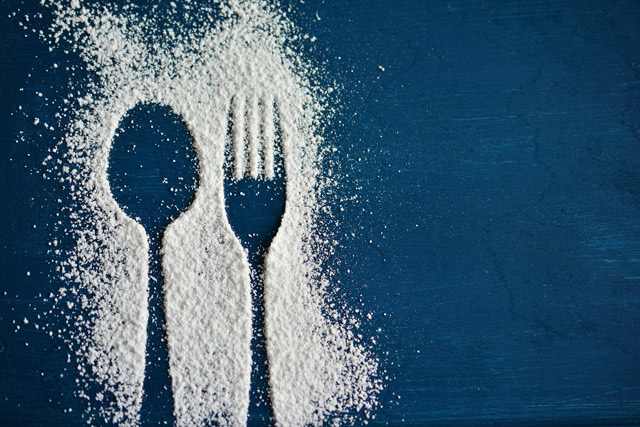
Sugar addiction is alive and well in this country. From adding on unwanted pounds to increasing heart disease, consuming sugar has many negative side effects. If you treat your body as a temple, then tossing sugar from your diet is a must. There are grave dangers when sugar is consumed in excess on a regular basis.
The craziest thing is that sugar is often hidden in everyday food that we do not even realize! For example, fruit juice is loaded with extra sugar and even if you diligently read the nutrition labels, sugar can be hidden and renamed with words ending in “ose,” like dextrose.
How does sugar affect inflammation?
While you have likely heard of the negative effects of sugar on your weight, you may not realize it can also cause inflammation in your joints and muscles. When you consume large amounts of sugar, large amounts of insulin is released in your body too. This causes a series of biochemical reactions that results in inflammation. By using a blood test called C-reactive protein (CRP) to measure inflammation, studies have shown that eating sugary foods cause CRP levels to increase. When your joints and muscles are inflamed, you will feel pain and ache.
What is glycation?
Additionally, glycation leads to joint pain and stiffness as you age due to your sugar consumption. Glycation is the process in which sugar bonds with proteins to form compounds. These compounds are called advanced glycation end products, or AGEs for short. AGEs are not good. They speed up the oxidative process and can change your normal cell behavior. They are thought to play a major role in the aging process of your skin and are related to many age-related chronic illnesses.
On top of all of this, an accumulation of AGEs in joint tissues has been shown to cause changes in articular cartilage. This means the cartilage is more susceptible to damage and development of osteoarthritis.
How does sugar affect other parts of my body?
Now that you understand how sugar can cause pain and inflammation, there’s still a lot more damage that sugar can do to your body.
Teeth – Often forgotten, one of the most basic ways that sugar affects our bodies is through our teeth. As sugar sets up shop on your teeth, it has a rapid ability to breakdown enamel and decay your teeth. Be sure to brush at least twice daily and even limit your sugary treats to prevent this altogether.
Gum disease – Consuming sugar also changes the pH balance of the saliva in your mouth. This directly relates to periodontal disease. Eventually, this all leads to gum disease which is directly related to heart disease.
Immune system – Too much sugar in your system may put your white blood cells in a temporary coma. White blood cells fight infections in your body and when you consume too much sugar, these cells can get confused and greatly reduce your chance at fighting off the illness.
Cognitive Decline – New research is finding links between high blood sugar and cognitive decline, include leading to Alzheimer’s.
Stress – In the moment, a delicious chocolate chip cookie might sound like a nice little break from the stress in your life. However, while we may think a sugary treat is helping our stress levels, it is indeed doing the exact opposite. Sugar causes stress hormones to be released when you body starts crashing after the initial consumption. Opt for a walk over that cookie any day of the week.
Cancer – Carcinogenic cells just love sugar. Feed your body sugar and it will give that energy to cancer cells too.
What type of sugar should I avoid?
Before throwing all your sugar out, work on limiting the amount you consume first. Going cold turkey is very risky and may lead you in a downward spiral.
Sugar you should avoid is any type of simple sugar with no fiber. This includes: white and brown sugar, molasses, honey, cane sugar, corn sugar, artificial sugar and fruit juices. While some fruit juice like orange juice has loads of vitamin C, it still has added sugar that will do you more harm than good. It is best to greatly limit or avoid fruit juices altogether.

What type of sugar is ok to eat?
Naturally if you are told to avoid sugar, you might want to know if there is any type of sugar you can consume. Ideally, removing all sugars from your diet is your best bet. Changing your diet to follow a low glycemic food intake would be ideal. If you choose a sugary substance, your best bet will always be something that is more natural. While honey and stevia are still sugar, they are better options than aspartame or sucralose.
Final Thoughts
It is sad to say, but sugar has got to go from your diet. Providing literally zero health benefits and a bunch of major side effects, it is time to toss it. Once your body goes through sugar withdrawal, you can surely find smooth sailing and choose a diet that makes your body healthy and happy.
Comments are closed.
